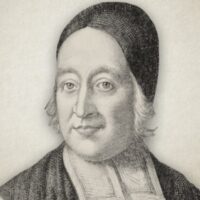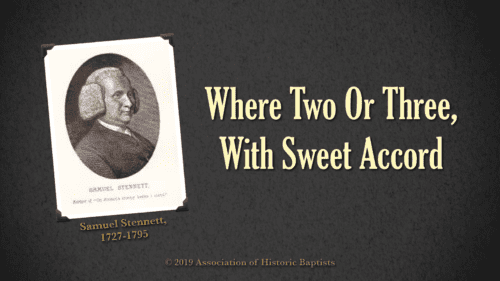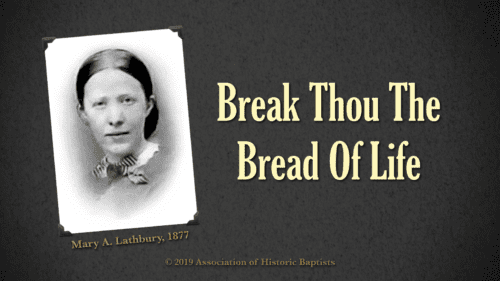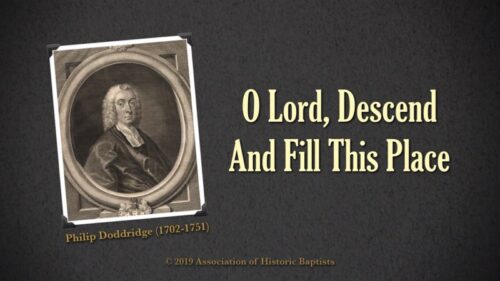Praise God, From Whom All Blessings Flow
Psalm 147: “Praise ye the Lord: for it is good to sing praises unto our God; for it is pleasant; and praise is comely. The Lord doth build up Jerusalem: he gathereth together the outcasts of Israel. He healeth the broken in heart, and bindeth up their wounds. He telleth the number of the stars; he calleth them all by their names. Great is our Lord, and of great power: his understanding is infinite. The Lord lifteth up the meek: he casteth the wicked down to the ground. Sing unto the Lord with thanksgiving; sing praise upon the harp unto our God: who covereth the heaven with clouds, who prepareth rain for the earth, who maketh grass to grow upon the mountains. He giveth to the beast his food, and to the young ravens which cry. He delighteth not in the strength of the horse: he taketh not pleasure in the legs of a man. The Lord taketh pleasure in them that fear him, in those that hope in his mercy. Praise the Lord, O Jerusalem; praise thy God, O Zion. For he hath strengthened the bars of thy gates; he hath blessed thy children within thee. He maketh peace in thy borders, and filleth thee with the finest of the wheat. He sendeth forth his commandment upon earth: his word runneth very swiftly. He giveth snow like wool: he scattereth the hoarfrost like ashes. He casteth forth his ice like morsels: who can stand before his cold? He sendeth out his word, and melteth them: he causeth his wind to blow, and the waters flow. He sheweth his word unto Jacob, his statutes and his judgments unto Israel. He hath not dealt so with any nation: and as for his judgments, they have not known them. Praise ye the Lord.”
Thomas Ken (1637-1710) was an English Protestant preacher and hymn writer. He is best known as the author of “Morning And Evening Hymns” and the Doxology, “Praise God, From Whom All Blessings Flow”. John Gadsby wrote of him:
“Thomas Ken was born at Berkhampstead, Herts, in July, 1637. He was sent to the Winchester College, and was afterwards elected to New College, Oxon, where he took up his decrees of B.A. 1661, M.A. 1664, Bachelor of Divinity 1678, and D.D. 1679. Some time after this he published his hymns, etc. In 1660 he was preferred to the dignity of Prebendary in the Cathedral Church of Winton, where he was taken notice of by King Charles II. In 1675 he travelled through Italy, and on his return said he had great reason to be thankful for his journey, since, if it were possible, he was more than ever confirmed of the purity of the Protestant religion. About 1679 or l680 he was appointed chaplain to the Princess of Orange, and went to Holland, where she was then residing. Here he compelled one of her favorites to fulfil a contract of marriage with a young lady of the princess's train, whom he had seduced by that contract. This zeal gave such offence to the prince (afterwards King William III) that he threatened to turn him out of the service; upon which Ken begged the Princess to allow him to resign, and accordingly threw up his office, nor would he consent to return until entreated by the Prince. In 1684 he was appointed chaplain to the king (Charles II). Upon the removal of the court to Winchester to pass the summer, Ken's house was fixed upon as the residence of the celebrated Nel Gwynne, Charles's mistress; but Ken positively refused her admittance, which, instead of offending that profligate monarch, he soon afterwards appointed him to the bishopric of Bath and Wells. In 1685 the king died, and James II ascended the throne. Having been brought up a Papist, he endeavored to re-establish the Popish religion, which Ken opposed, and often preached against it. On one occasion, when the king was absent, Ken's enemies took the opportunity of accusing him to the king for his sermon; whereupon Ken remarked, that "if his majesty had not neglected his own duty of being present, his enemies would have missed this opportunity of accusing him." When the king ordered the famous declaration of indulgence to be read, Ken and six other bishops refused to comply, and were committed to the Tower to take their trial; but the jury acquitted them. The infamous Judge Jeffries lived at this time, under whom no less than 250 persons were executed. When James abdicated, and the Prince of Orange came over as William III, Ken vacated his see, as he would not swear allegiance to the new sovereign while his former master was living. Ken now removed to Longleat, in Wiltshire, where he resided in comparative retirement the remainder of his days. He died March 19th, 1710. He was the author of the well-known Morning and Evening Hymns, and of the Doxology, "Praise God, from whom all blessings flow."
Thomas Ken Hymn Studies






